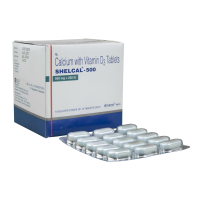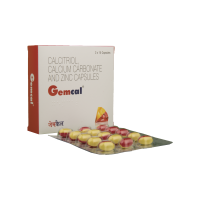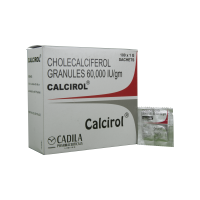USED FOR:
Osteoarthritis
Rheumatoid arthritis
Ankylosing spondylitis
COMPOSITION:
Etoricoxib (120mg)
Therapeutic Uses:
pain analgesics

Interaction with alcohol is unknown. Please consult your doctor.

WEIGH RISKS VS BENEFITS
Rhucoxia 120mg Tablet may be unsafe to use during pregnancy.Animal studies have shown adverse effects on the foetus, however, there are limited human studies. The benefits from use in pregnant women may be acceptable despite the risk. Please consult your doctor.

No information is available on the use of Rhucoxia 120mg Tablet during lactation. Please consult your doctor.

Rhucoxia 120mg Tablet may make you feel dizzy, sleepy, tired, or decrease alertness. If this happens, do not drive.

CAUTION
Rhucoxia 120mg Tablet should be used with caution in patients with kidney disease. Dose adjustment of Rhucoxia 120mg Tablet may be needed. Please consult your doctor.Use of Rhucoxia 120mg Tablet is not recommended in patients with severe kidney disease.

CAUTION
Rhucoxia 120mg Tablet should be used with caution in patients with liver disease. Dose adjustment of Rhucoxia 120mg Tablet may be needed. Please consult your doctor.Use of Rhucoxia 120mg Tablet is not recommended in patients with severe liver disease.
Uses of Rhucoxia Tablet
Rhucoxia 120mg Tablet is used in osteoarthritis, rheumatoid arthritis, ankylosing spondylitis, gout, arthralgia, muscle pain, pain during menstruation and post operative pain.
How to use Rhucoxia Tablet
Take this medicine in the dose and duration as advised by your doctor. Swallow it as a whole. Do not chew, crush or break it. Rhucoxia 120mg Tablet may be taken with or without food, but it is better to take it at a fixed time.
How Rhucoxia Tablet works
Rhucoxia 120mg Tablet is a non-steroidal anti-inflammatory drug (NSAID) called COX-2 inhibitors. It works by blocking the release of certain chemical messengers that are responsible pain and inflammation (redness and swelling).
Common Abdominal pain, Palpitations, Nausea, Vomiting, Headache, Heartburn, Gastritis, Dizziness, Constipation, Edema, Diarrhoea, Dyspepsia, Increased blood pressure, Flatulence.
Expert advice for Rhucoxia Tablet
It can be taken with or without food. Rhucoxia may cause fewer stomach problems as compared with other NSAIDs like Ibuprofen or Naproxen. It can also affect kidneys or cause permanent kidney damage if taken for a long time. Rhucoxia can raise your risk of blood clots, heart attack, or a stroke. Inform your doctor if you have ever been diagnosed with kidney or liver problems. Inform your doctor if you are pregnant or planning to conceive or breastfeeding.
Q. Is Rhucoxia a narcotic?
No. Rhucoxia is not a narcotic. It is a non-steroidal anti-inflammatory drug(NSAID).
Q. Is Rhucoxia a painkiller?
Yes. It is a pain killer. It belongs to the class of medications known as non-steroidal anti-inflammatory drug (NSAID).
Q. What is the difference between Rhucoxia and celecoxib?
Both Rhucoxia and celecoxib are the medicines which inhibit an enzyme COX-2 (Cyclooxygenase-2) causes pain and inflammation. However, according to the research studies, Rhucoxia is better than celecoxib in terms of effectiveness.
Q. How to differentiate Rhucoxia and ibuprofen?
Rhucoxia is a Selective Cyclooxygenase-2 (COX-2) inhibitor which is an enzyme responsible for pain and inflammation but ibuprofen in a non-selective COX inhibitor which has more gastric side effects like gastric ulceration as compared to Rhucoxia.
Q. Can warfarin be used with Rhucoxia?
No. Rhucoxia should be avoided with warfarin as they both lead to increase in bleeding tendencies. Inform your doctor if you are taking any of the medications. If given together then the therapy should be monitored closely.
Q. Can I use Rhucoxia for hypertension?
No. Rhucoxia is a pain killer. It should be avoided in hypertension as it can lead to failure of the antihypertensive therapy and there is increased risk of fluid retention and oedema.
Q. Can a patient of diabetes use Rhucoxia?
Normally painkillers are to be avoided in a patient with diabetes. Rhucoxia can increase the risk of kidney failure when given in a patient of diabetes with compromised renal function. Inform your doctor if you have diabetes before starting Rhucoxia.
Q. Can I take Rhucoxia along with Thiocolchicoside?
Yes. Thiocolchicoside is a muscle relaxant which is given in combination with Rhucoxia but it is not approved. Consult your doctor before starting this medication.
Q. How to differentiate Rhucoxia and meloxicam?
Meloxicam causes gastric toxicity and can lead to black stools due to bleeding whereas Rhucoxia is comparatively safer for the gastric mucosa. Rhucoxia has cardiovascular (heart attack and stroke) side effects.
Q. Can I take diclofenac along with Rhucoxia?
Both are pain killers. If they are taken together it increases the chances of side effects so better consult your doctor before starting them.
Q. Can I take paracetamol with Rhucoxia?
Yes. They can be taken together but it increases the chances of liver damage. It can only be taken after consultation with your doctor before starting any of these medications or in combination.
Q. Can I take pregabalin with Rhucoxia?
Yes. They can be taken together but you need to consult your doctor before starting any of these medications or in combination.
Q. Can I take tramadol along with Rhucoxia?
Yes. They can be taken together but you need to consult your doctor before starting any of these medications or in combination.
Q. Can acenocoumarol be taken along with Rhucoxia?
No. Rhucoxia should be avoided with acenocoumarol as they both lead to increase in bleeding tendencies. Inform your doctor if you are taking any of the medications. If given together then the therapy should be monitored closely.
Q. How is naproxen different from Rhucoxia?
Naproxen is a non-selective Cyclooxygenase (COX) blocker whereas Rhucoxia is a selective COX-2 blocker. Rhucoxia has lesser gastric side effects. In research studies, Rhucoxia has been found to have better effectiveness but the side effects are more.
Q. How is etodolac different from Rhucoxia?
Etodolac and Rhucoxia both are COX-2 inhibitors, an enzyme associated with the pain and inflammation but the COX-1 selectivity for etodolac is more as compared to Rhucoxia.
Q. What is the contraindication for Rhucoxia?
Contraindications with Rhucoxia are allergy or hypersensitivity, heart disease, high blood pressure, renal failure, gastric ulceration, history of stroke, pregnancy, lactation and severe liver dysfunction.
Q. Can I use Rhucoxia for allergy?
No. Rhucoxia is not to be taken in a case of allergy.
Q. Can I use Rhucoxia for chest pain?
No. Rhucoxia is absolutely contraindicated in chest pain. Immediately consult your doctor if you have a chest pain.
Q. Can I use Rhucoxia for inflammation?
Yes. Rhucoxia can be used for inflammation. It helps to reduce the inflammation and pain associated with inflammation. Rhucoxia is associated with a lot of side effects so it is to give in shortest duration possible and the lowest effective daily dose.
Q. Can tonsillitis be treated with Rhucoxia?
No. Tonsillitis is caused due to infections in the tonsils which is most commonly by the bacteria. Antibiotics are used to treat tonsillitis. Rhucoxia is a pain killer and can be used only to reduce the pain associated with tonsillitis but only with a prescription of a doctor.
Q. Can tendonitis be treated with Rhucoxia?
Yes. Rhucoxia can be used for pain management. It helps to decrease the pain and reduces the inflammation associated with the tendonitis. Rhucoxia is associated with a lot of side effects so it is to give in shortest duration possible and the lowest effective daily dose.
Q. Can I use Rhucoxia for pain?
Yes. Rhucoxia can be used for pain management. It helps to decrease the pain and reduces the inflammation associated with the condition. Rhucoxia is associated with a lot of side effects so it is to give in shortest duration possible and the lowest effective daily dose.
Q. Can I use Rhucoxia in fever?
No. Rhucoxia is a pain killer. It is not a medicine to be taken for fever.
Q. Can I use Rhucoxia in sciatica?
Yes. Rhucoxia can be used to decrease the pain but it does not cure the condition. Sciatica is a disease which is caused due to problems in the nerve and vertebral column. Rhucoxia acts as a pain killer and only decreases the pain. Consult your doctor if you are diagnosed with sciatica for proper treatment.
Q. Can I use Rhucoxia for arthritis and pain management?
Yes. Rhucoxia can be used for arthritis and pain management. It helps to decrease the pain and reduces the inflammation associated with the condition. Rhucoxia is associated with a lot of side effects so it is to give in shortest duration possible and the lowest effective daily dose.
Q. Can I use Rhucoxia for ankylosing spondylitis?
Yes. Rhucoxia can be used for ankylosing spondylitis. It helps to decrease the pain and reduces the inflammation associated with the condition.
Q. Can I take Rhucoxia for a sore throat?
Sore throat is mostly caused by bacteria so antibiotics are given to treat a sore throat whereas Rhucoxia is a pain killer so it can be given in cases of throat pain associated with it but only under the prescription of a doctor.
Q. Can I take Rhucoxia for a migraine?
Rhucoxia is a pain killer but it is not approved for the treatment of pain associated with a migraine.
Q. Can dental pain be treated with Rhucoxia?
Yes. Rhucoxia can be given in the dental pain as shown by the research studies. It is mostly recommended for Postoperative dental surgery pain. Do consult your doctor and inform if any ongoing medicines before starting Rhucoxia.
Q. Can I take Rhucoxia for gout treatment?
Rhucoxia can be given for acute gout as shown by the research studies. It provides relief by decreasing the pain and inflammation associated with gout.
Q. Can I take oral contraceptives with Rhucoxia?
When oral contraceptives and Rhucoxia is given, there are increased levels of oestrogen in the body which can lead to oestrogen related side effects like clots in a deep leg vein. So if at all Rhucoxia is prescribed by a doctor do inform you are taking oral contraceptive.
Q. Can I take methotrexate with Rhucoxia?
Blood levels of methotrexate is increased when it is given with Rhucoxia. Proper monitoring of the blood levels and adequate dose adjustments are required if they are prescribed together.
Q. Can I take lithium with Rhucoxia?
Rhucoxia decrease lithium renal excretion and therefore increase lithium plasma levels. If necessary, monitor blood lithium closely and adjust the lithium dosage while the combination is being taken.
Q. Can I take Rhucoxia with tacrolimus?
No. You should avoid Rhucoxia with tacrolimus. It increases the risk of kidney damage by many folds when these two are given together.
Q. Can I take Rhucoxia for osteoarthritis?
Yes, you can take Rhucoxia for osteoarthritis. Osteoarthritis is a joint disease and Rhucoxia may help in reducing the pain associated with the disease.
Q. Can I take Rhucoxia in heart disease?
No, you should not take Rhucoxia if you have heart disease or increased risk of heart disease. Rhucoxia increases the risk of heart attack, stroke and hypertension. Inform your doctor if you have heart disease before you start taking Rhucoxia.


 Rhucoxia 120mg Tablet
Rhucoxia 120mg Tablet  Bookmark
Bookmark





















